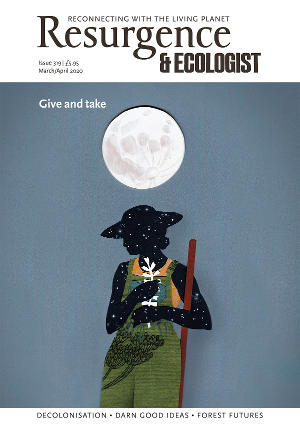Natalie Fee takes us on a journey of discovery in her new book How to Save the World for Free, revealing how we can all make small but significant changes in our lives to leave the world a better place than we found it, and that these changes can be easy, and even fun. The book covers topics such as what we eat, wear and buy, how we get from A to B, and much more. Fee opens with ‘The Seven Things We Need to Save’, which are the oceans and seas, rivers and ice, forests, soil, the atmosphere, plants and animals, and ourselves. This section of the book is key, as it weaves together these strands of the whole, helping readers to become aware of how interdependent all these aspects of the living planet really are. Fee discusses the multifaceted ways in which we can reduce our impact on the Earth, not just by giving up single-use plastic, for example, but also by using less water and energy, and how we can help reduce greenhouse-gas emissions by lowering or eliminating our meat intake. “Every day you have three significant opportunities to vote for the planet, through what you eat for breakfast, lunch and dinner,” she tells us. When we see what is happening around the world, be it plastic pollution, climate breakdown, wildfires or the shocking data that assails us on a daily basis about the state of the planet, it is natural to feel overwhelmed, daunted and powerless, but Fee tackles these difficult issues with positivity and humour, instilling in us a sense that it’s not too late, and that if we all pull together we can do something about it. Her gift is to bring everyone into the conversation in a hopeful and relatable way that encourages us to take action. I particularly like her suggestions to reuse what we already have, such as recycling grey water from the bath or sink onto the garden, or putting used coffee grounds into the compost heap to help build a good tilth. It can often be difficult to know where to start when embarking on this journey, which is why I really like the ‘how to’ style of this book. It makes what can be complex information easy to digest, and the book becomes a guide that readers will refer to time and again. It is packed with achievable hints and tips, with something for everyone to take away, whether they are just starting out or have been making lifestyle changes for some time. And there’s a win–win situation here: the changes that you make for the sake of the environment will most likely have positive repercussions for you too, whether that’s getting fitter and reducing stress levels by cycling or walking instead of going by car, spending more time outdoors to improve your mood, or making switches to reusable products that will save you money and time in the long run. For deep ecologists and those who have ‘flown the green flag’ for years, this book may still offer a few unexpected insights, but for those who are showing an interest in going greener, or for students focusing on sustainability, as well as young adults going to climate marches, it will be an invaluable addition to their bookshelf. Ella Daish is an environmental activist who has been campaigning since early 2018 to remove plastic from menstrual products.
Flying The Green Flag
Resurgence & Ecologist
Issue 319
Mar/Apr 2020
Give and Take
Flying The Green Flag
by Ella Daish
Cover: In Dreams We Wake by Molly Costello www.mollycostello.com






